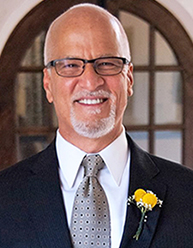Summer days were long and full of fun and adventure for young boys like me. Every day after I finished my chores, I was free to roam and play with my neighborhood friends. We would only return home for meals and when the street lights came on in the evening. On occasion, we were allowed to ride our bikes to the store and get candy with our allowance or money we earned. It was always amazing to see all of those delicious sweets, and even more amazing were to eat. One day before going to go to the store, I went to get money out of my piggy bank. It was empty. Searching my pockets and drawers didn't turn up any coins either. What was I going to do?
As I walked out of my room, I passed the door to my parent’s bedroom. That’s when I saw it. The answer to my problem: a dollar bill on my mother’s nightstand. But an inner voice told me not to take it. It wasn’t my money. It would be stealing. Did I listen? No. I looked around, ran in and grabbed it. Then I rode away for my good times and delicious treat. When I bit into my favorite candy bar, it didn’t taste as it should. In fact, my adventure was far from satisfying. I felt ashamed. I felt remorse. If I had only listened to that voice, how much better would I have felt?
King David was in a time of his glory. With Goliath and the Philistines subdued and Saul dead, David ruled Israel. Things were going great! But as we read the first verse of 2 Samuel 11, David is entering a dangerous territory:
“In the spring of the year, when kings normally go out to war, David sent Joab and the Israelite army to fight the Ammonites. They destroyed the Ammonite army and laid siege to the city of Rabbah. However, David stayed behind in Jerusalem.”
If a nation was going to launch a military campaign, they did it in spring when the conditions were best for logistics. That’s when kings went to war. That’s when kings led their armies. David launches a military strike on the Ammonite city of Rabbah, but he “stayed behind in Jerusalem.” David didn’t listen to God. David sent his general Joab to mop things up. In fact, this chapter in 2 Samuel reveals that David had decided to kick back, relax and enjoy, saying "late one afternoon, after his midday rest, David got out of bed and was walking on the roof of the palace. As he looked out over the city, he noticed a woman of unusual beauty taking a bath.”
David is napping late in the day. He takes a leisurely stroll on the palace roof — the tallest building in the city — and starts looking around. David didn’t listen to the rules of decency. He knew that was the time of day that women would go on their roofs for privacy to bathe. David sees Bathsheba. David lusts. David listens to his desires over his conscience. David takes. Bathsheba gets pregnant. David tries to cover up his sin by bringing Uriah — Bathsheba's husband — home from battle, where David should have been. He hoped Uriah would sleep with his wife, setting David free of his sin. But Uriah wouldn’t. Uriah listened to God and his conscience, so David had him killed.
David eventually repented of his wrong. God forgave him, but for the rest of David’s reign, this misdeed haunted his family and his kingdom.
Whether in David’s life or ours, God speaks to us. It’s up to us to listen. Pray that as you serve others, as you interact with your colleagues and live your life, that you will both hear God’s whispers and live them out in your lives.
—Terry Swenson, DMin, is director of University Spiritual Care.


